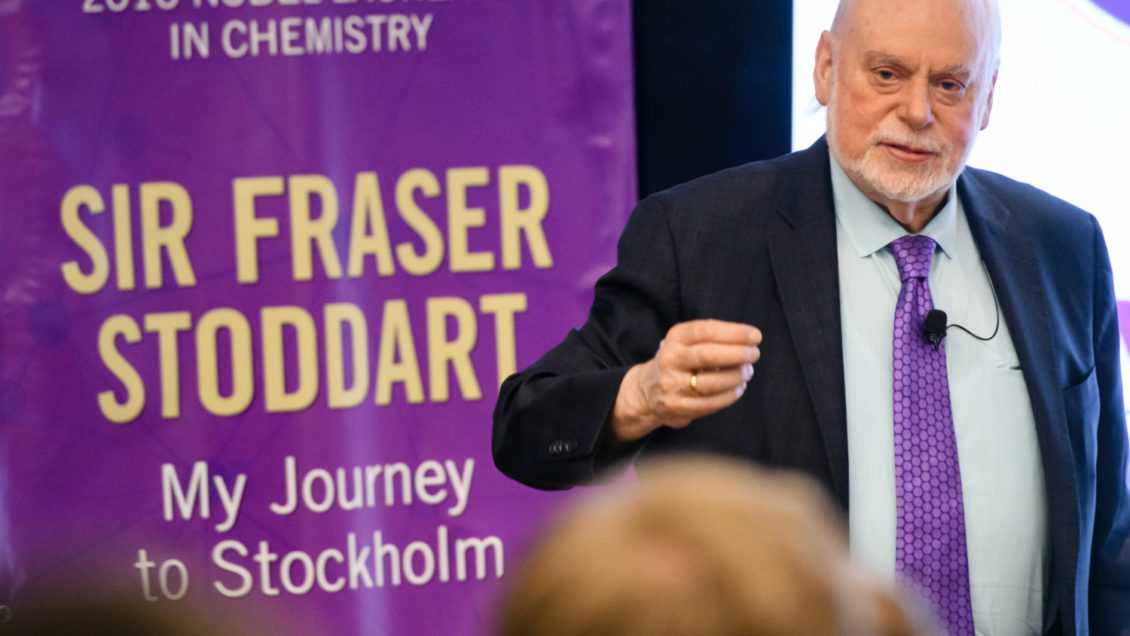 In a 75-minute talk at Clemson on April 30, 2019, replete with humility and punctuated with humor, Sir Fraser Stoddart recounted significant steps on a journey from a small farm in Scotland to Stockholm.
In a 75-minute talk at Clemson on April 30, 2019, replete with humility and punctuated with humor, Sir Fraser Stoddart recounted significant steps on a journey from a small farm in Scotland to Stockholm.
Stoddart, winner of the 2016 Nobel Prize in Chemistry, relayed the difficulties as well as the triumphs of a life in science, culminating with a description of his work that led to molecular machines — molecules designed and arranged to work together to perform specific functions, like tiny pumps, switches or sensors.
He credited life on his family’s farm, which lacked electricity throughout his boyhood, as well as hands-on work and free time to wander and play as early inspiration for his life’s work. He talked about balancing career aspirations with family needs, an early stent working in industry that freed him from academic inertia, and the collaborative spirit he found later in life at UCLA and Northwestern University.
Before his talk, Stoddart sat down for an interview. In the first of two videos, Stoddart talks about scientific freedom, overcoming failure and what it takes for a scientist should promote her or his work.
[vid origin=”youtube” vid_id=”A7LEDKpl32M” size=”medium” align=”left”]
In the second video, Stoddart talks about the emergence of China on the global scientific stage and how a lack of science education handicaps Western political systems.
[vid origin=”youtube” vid_id=”hx3CzMA_p5E” size=”medium” align=”left”]
Throughout the day Stoddart met with small groups of chemistry graduate students and faculty to talk about science and to offer advice on academic careers.









Get in touch and we will connect you with the author or another expert.
Or email us at news@clemson.edu

